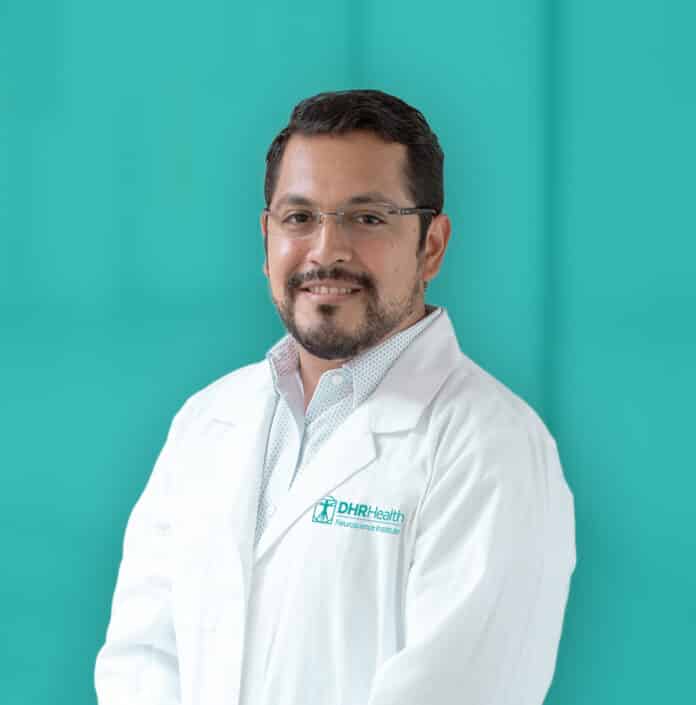
R. Alejandro Cruz, MD
DHR Health Neuroscience Institute
Multiple Sclerosis (MS) is the second most common cause of non-traumatic neurological disability in young adults. It is an autoimmune inflammatory disease of the central nervous system, this means that it is a disease where the immune system starts attacking the brain, optic nerves, and spinal cord. Multiple Sclerosis is classified as a neurodegenerative disease.
According to the most recent prevalence published in 2019, nearly one million adults are living with MS in the United States. The average risk of developing MS is determined to be 3.5 in 1,000 or less than half of 1%, however this risk increases to 3-4% for individuals with a first degree relative with MS. In order to develop MS a genetic predisposition is required, nevertheless a trigger or a combination of factors is needed to detonate this autoimmune disease.
Multiple Sclerosis can present in different forms, the most common form of MS is relapsing remitting disease, however there is also a degree of progression derivate from the neurodegenerative nature of this chronic illness. The symptoms of MS vary widely; depending on which area of the central nervous system is affected. MS can present as fatigue, cognitive difficulties, visual symptoms, hearing changes, dizziness, stroke-like symptoms, tremors, bladder symptoms, muscle weakness, sensory changes, walking or coordination problems, and mental health disorders.
Low levels of vitamin D, cigarette smoking, and certain infections such as mononucleosis (Epstein Barr’s virus) are known factors that can increase the risk of having MS. On the other hand, good levels of vitamin D and parasitic infections have been linked to a lower risk of developing MS. Multiple sclerosis is more common in women than in men. Previously it was thought that Latino and African American populations had a lower prevalence of this disease, however more recent studies have shown that this may no longer be the case.
As of now, there is not a cure for MS, however there are now 23 FDA approved disease modifying therapies (DMT) to fight MS. Even though DMTs do not represent a cure, the effectiveness of these medications can in many cases achieve what we call as state of “NEDA” or Not Evidence of Disease Activity (NEDA).
DHR Multiple Sclerosis Center is the only MS clinic in the RGV that has been recognized by the national MS society as partner in MS care, as such we not only offer every available DMT, but we also have a team of medical professionals available to work as a team to provide comprehensive MS care.
If you would like more information on MS, please speak to your physician or call DHR Health Neuroscience Institute at (956) 362-8500, Ext. 1. We are available to answer any questions you may have and discuss the steps you can take to help ease your symptoms.




